Explore the Best AI Image Gallery

The AI Lens: Revolutionizing Product Photography
Product photography has always been a crucial element in e-commerce and marketing, conveying the essence of a product to potential buyers. However, the advent of artificial intelligence (AI) is ushering in a new era for this field, promising increased efficiency, creative possibilities, and a more immersive shopping experience.
The Rise of AI in Product Photography
AI-powered tools are now being integrated into various aspects of product photography, from image capture to post-processing. Some key applications include:
- Automated Image Generation: AI algorithms can generate high-quality product images based on text descriptions or 3D models, eliminating the need for physical shoots in certain cases.
- Image Enhancement and Retouching: AI can automatically adjust lighting, remove blemishes, and enhance product details, streamlining the post-processing workflow.
- Virtual Backgrounds and Scene Creation: AI enables the generation of realistic virtual backgrounds and product placements, allowing for greater flexibility and creativity in image composition.
- 360° Product Views: AI-powered software can stitch together multiple images to create interactive 360° product views, providing a comprehensive and immersive viewing experience for customers.
Impact on the Creative Industry
The integration of AI in product photography is significantly impacting the creative industry in both positive and challenging ways:
- New Opportunities for Creativity: AI tools provide photographers with new possibilities for experimentation and artistic expression, allowing them to focus on conceptualizing and directing shoots rather than technical aspects.
- Increased Efficiency and Productivity: Automation of tasks like image retouching and generation frees up time for photographers and designers to concentrate on higher-level creative endeavors.
- Democratization of Product Photography: AI-powered tools make high-quality product photography more accessible to businesses with limited resources, leveling the playing field in e-commerce.
- Job Displacement Concerns: While AI creates new opportunities, there are concerns about potential job displacement for photographers and retouchers as automation becomes more widespread.
Ethical Considerations
The use of AI in product photography raises several ethical considerations:
- Transparency and Disclosure: It is crucial to be transparent with consumers about the use of AI in creating product images, avoiding deceptive practices.
- Bias and Representation: AI algorithms can perpetuate existing biases if trained on biased datasets. It is important to ensure that AI-generated images represent diverse populations fairly and accurately.
- Intellectual Property Rights: The ownership of intellectual property rights for AI-generated images remains a complex and evolving issue.
Future Trends
The future of AI in product photography is brimming with possibilities:
- Hyper-Personalization: AI will enable the creation of highly personalized product images tailored to individual customer preferences and demographics.
- Interactive Product Experiences: AI-powered tools will enhance e-commerce platforms with interactive product visualizations, allowing customers to virtually try on clothes, assemble furniture, or explore product features in detail.
- Real-Time Image Generation: AI will enable the real-time generation of product images based on user input or changes in product specifications, streamlining design and production processes.
Conclusion
AI is undoubtedly transforming the landscape of product photography, offering exciting opportunities for creativity, efficiency, and customer engagement. As AI technology continues to evolve, it will be crucial for photographers, designers, and businesses to embrace these advancements while navigating the ethical considerations that accompany them.
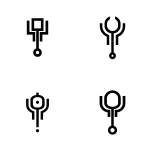
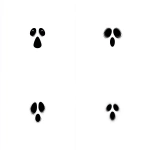

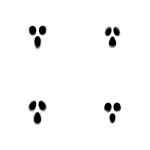
](https://images.ai-img.art/thumbnails/150/03de477e462377e62b34fea23ab1cbf6d4557f4077cc8bed9f23388af1200721.webp)

](https://images.ai-img.art/thumbnails/150/8884a7a8953b23d6c882f33524c10e09d320bbce4f305f2c7e79c402d82c1760.webp)
](https://images.ai-img.art/thumbnails/150/c04f7210bb9d35279503ff64ad44a9826d6909838f777fb1edd0fdece2ac7c70.webp)
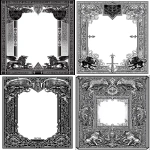


](https://images.ai-img.art/thumbnails/150/bbf691f1c69e4801062c68d0435463c5bf76258e3984fbe3cc25e9e46174cf88.webp)
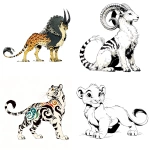
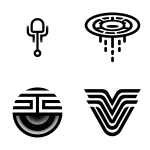


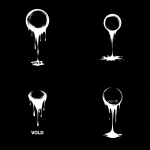
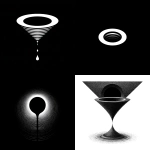


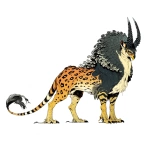
](https://images.ai-img.art/thumbnails/150/16ec42833d204af37c75cc776a794c54661cbfe1061c899680a4976a7f74cd51.webp)

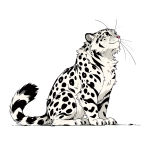
](https://images.ai-img.art/thumbnails/150/f1cbba604c7411267acd95acaa4746a5ee006a25ade5e596a9501884b384e1dd.webp)
](https://images.ai-img.art/thumbnails/150/45d068cbdc39002eccc21e2169438a3c142426219fda8c9e027c536cdf66811e.webp)


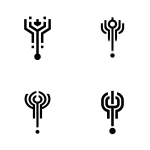
](https://images.ai-img.art/thumbnails/150/f9928aee79da6b2028ac7a7129ac30e6475a85d5300661776fde267c2da839ab.webp)

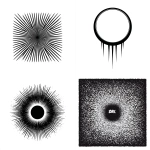
](https://images.ai-img.art/thumbnails/150/89d86a1c20e8844b6d4ce23cf0e6ae10c19923617b6be16cac5d3cc513bf9c4e.webp)
](https://images.ai-img.art/thumbnails/150/4d725f4d5380eb583bdebf0aad4c789acd6782398b4050f01f350a939dd4c2af.webp)
](https://images.ai-img.art/thumbnails/150/55e9c8ac48f7ca1311ec4a843e2616aa87c73e2217901ac138d198afb0b4f1db.webp)
](https://images.ai-img.art/thumbnails/150/9ad2f4d771346182f4c9b6d1712edfd0b6b776f37b75dac606a8e03b1bd2dc47.webp)
](https://images.ai-img.art/thumbnails/150/5b3fca49762c8c532ff70f250ca3b5900bac75be98d6c82f8f7a220465ad534a.webp)


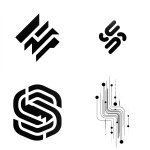
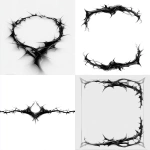



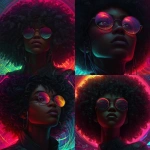
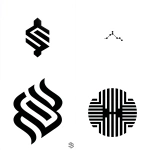
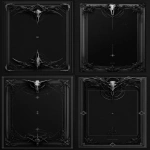

](https://images.ai-img.art/thumbnails/150/78a1311461ccc4b60dd1430d56ee04b3b5612a3145aef0a32196168d5489fdf3.webp)
](https://images.ai-img.art/thumbnails/150/cc8f7b8338e849e1e11a902ac51eda96c8f710e5d829c5b4d57b56fa05d28e95.webp)